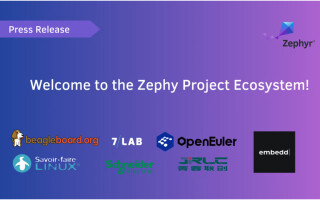Infineon Launches TPM with a PQC-Protected Firmware Update Mechanism
March 01, 2022
News

Quantum computing is beginning to have a considerable impact on cybersecurity. The challenges of keeping encrypted data confidential with added integrity of digital signatures is fast becoming a focal point for cybersecurity.
To focus on the challenges, Infineon Technologies AG released the OPTIGA TPM (Trusted Platform Module) SLB 9672. The new TPM will future-proof security solutions with a post-quantum cryptography (PQC) protected firmware update mechanism using XMSS signatures.
The mechanism reduces the danger of firmware corruption by attackers with access to quantum computers and enhances long term survivability of the device by enabling a quantum-resistant firmware upgrade path.
The standardized TPM provides a foundation for securely verifying the identity and software status of PCs, servers, and connected devices. It also protects the integrity and confidentiality of data at rest and while moving.
According to Infineon, its latest addition of the OPTIGA TPM family is the industry’s first TPM to offer a firmware update mechanism with a 256-bits key length, along with an additional check based on PQC.
The OPTIGA TPM SLB 9672 is still able to be updated if the standard algorithms are no longer reliable. It is engineered for improved computing performance with fail-safe features that lessen the effects of corrupted firmware. For instance, built-in fail-safe features enable TPM firmware recovery in accordance with the NIST SP 800-193 Platform Firmware Resiliency Guidelines.
The TPM provides an increased non-volatile memory to store features such as additional certificates and cryptographic keys. Infineon confirms the security evaluations and certifications are performed by independent bodies determined by the Common Criteria and FIPS requirements. It is fully compliant with the Trusted Computing Group (TCG) requirements (TPM 2.0 standard version 1.59) and is certified according to the latest TPM 2.0 standard.
The OPTIGA TPM SLB 9672 enables easy integration with host software and supports the latest versions of Windows and Linux. The chip boasts an extended temperature range of -40°C to 105°C.
Infineon announced it is committed to the long-term availability of OPTIGA TPM SLB 9672 for a minimum of ten years and offers tailored support and maintenance through the Infineon Security Partner Network (ISPN). With this long-term commitment, customers can not only rely on the TPM’s continued availability but also on Infineon’s support.
For more information, visit infineon.com.





